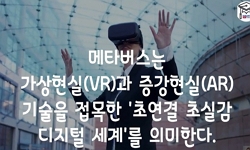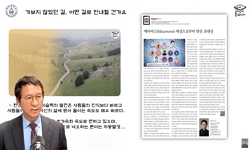Current metaverse studies have often overlook the fundamental value it can offer to humanity. This has led to growing concerns regarding its intrinsic value and the performance expectations associated with it. To address these issues, it becomes imper...
http://chineseinput.net/에서 pinyin(병음)방식으로 중국어를 변환할 수 있습니다.
변환된 중국어를 복사하여 사용하시면 됩니다.
- 中文 을 입력하시려면 zhongwen을 입력하시고 space를누르시면됩니다.
- 北京 을 입력하시려면 beijing을 입력하시고 space를 누르시면 됩니다.
부가정보
다국어 초록 (Multilingual Abstract)
Current metaverse studies have often overlook the fundamental value it can offer to humanity. This has led to growing concerns regarding its intrinsic value and the performance expectations associated with it. To address these issues, it becomes imperative to explore why there has been a recent decline in interest in the metaverse and to identify key research areas for future studies. In this study, we conducted a text mining analysis of the abstracts from a total of 1,071 metaverse-related research papers registered in academic research databases (RISS.or.kr). I performed word frequency analysis and LDA topic modeling analysis to gain insights into the evolving landscape of metaverse research over time. Our findings can be summarized as follows. Upon initial examination, word frequency analysis and LDA topic modeling results revealed active exploration of various metaverse-related themes, including virtual worlds, spatial experiences, platforms, research methodologies, utilization value, art content, and education. However, a closer look revealed a dynamic evolution in research themes over the years. Before 2021, discussions revolved around diverse topics such as digital worlds, virtual content, technological platforms, interdisciplinary research, industry-oriented services, social-spatial arts, and educational classes. In 2022, research interests shifted towards R&D, social impacts and educational services, particularly in response to the COVID-19 pandemic. By 2023, a prominent focus had emerged on educational services within virtual spaces, platform development, research analysis, utilization value, cultural tourism, educational classes, and immersive learning experiences. Based on our analysis, this study posits three key recommendations. First, it suggests a continued emphasis on the innovative educational services development leveraging edu-tech within the metaverse. Second, it encourages the development of services that harness the unique capabilities of the metaverse, such as hyperrealistic or surrealist content. Lastly, it emphasizes the importance of soliciting input from metaverse technology stakeholders, including industry and government regulators, alongside academia and research experts who are at the forefront of technological and service advancements. This holistic approach aims to foster a more diverse range of metaverse services.
동일학술지(권/호) 다른 논문
-
명품의 CSR과 가격 공정성: 럭셔리 수준과 가격 민감도의 상호작용효과
- 한국상품학회
- 김영희
- 2023
- KCI등재
-
뮤지컬 공연의 예매 시점에 따른 가격과 수요 분석을 통한 동적 가격제의 필요성에 관한 연구
- 한국상품학회
- 주예린
- 2023
- KCI등재
-
대학생의 성별, 자아존중감과 자기효능감이 운동참여 동기에 미치는 영향
- 한국상품학회
- 이재은
- 2023
- KCI등재
-
유사 충성도에 대한 사례연구: 서비스 충성도 유형의 변화를 중심으로
- 한국상품학회
- 장영용
- 2023
- KCI등재






 KCI
KCI 스콜라
스콜라






